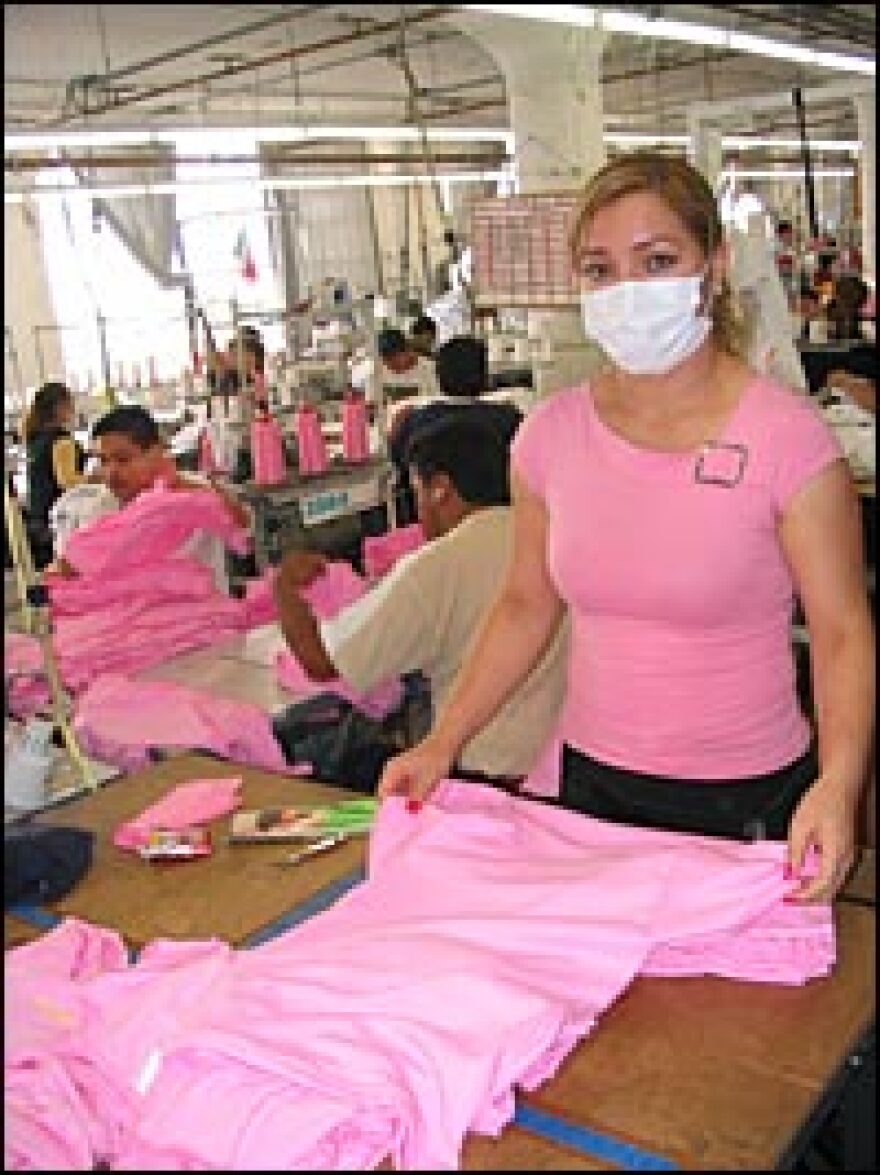



The debate over immigration has been dominated by politicians, pundits, and activists with differing viewpoints -- but rarely from those who hire immigrant workers, particularly in the garment industry.
Dov Charney runs American Apparel, the largest single garment factory in the United States. It's not your typical garment factory. There's electronica music playing in the showroom, hip, edgy, sexually suggestive photo ads on every wall, and a thriving team spirit among the workers.
And Charney is not your typical garment factory boss. The energetic and wiry 37-year-old regularly stops by each department to greet his employees. Like nearly all of his 3,800 workers, Charney is an immigrant -- though in his case, a Canadian with a green card.
He says 75 percent of his workforce is probably Mexican, and he claims to check the legal status of each one. "Everyone who works here, we check their documents -- but we don't over-document or under-document," he says. "We follow the law in a very precise manner."
Still, Charney admits that fake identification cards are easy to come by, and that many of those toiling in the apparel industry and similar businesses are undocumented.
"Agriculture, apparel, all the fundamental industries -- they're laced with falsely documented workers," he says, and the U.S. economy depends on this class of American workers.
But he adds that doesn't mean workers should be exploited, and American Apparel is something of a maverick in the industry when it comes to employee health and benefits. And the work environment is radically different, too. Every afternoon, workers take a 10-minute break for synchronized stretching exercises, and a team of massage therapists roams the factory floor to offer free neck rubs all day.
Earning twice the California minimum wage, employees get subsidized lunches, subsidized health insurance, free on-site English classes and free bus tokens -- even company bicycles to get to and from work. Charney likes to boast that American Apparel is "sweatshop free."
The strategy seems to be paying off -- last year, American Apparel earned more than $200 million in sales. The company is just three years old and already has 125 retail stores in the United States and around the world, and there are plans to expand.
Charney plans to use his clout to make a political statement -- on May 1, the factory will close so that he and his workers will take part in the national boycott for immigrant rights. He says he is in favor of liberal immigration policies, including open borders and an amnesty for immigrant workers -- and he's tired of hearing critics blame immigrants for all the problems facing America.
"Immigrants are the engine of our economy, whether we want to admit it or not," he says. "They're here, legal or illegal -- [a] fundamental part of the economy is these workers."
Copyright 2022 NPR. To see more, visit https://www.npr.org.





